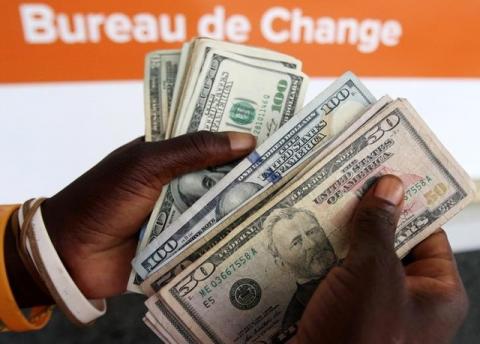Advertisement
Unlicenced Zimbabwe foreign currency traders face 10-year in jail
HARARE (Reuters) - Zimbabwe published exchange control rules on Thursday empowering police to arrest unlicensed foreign currency traders and those found guilty would face up to ten years in prison, Finance Minister Patrick Chinamasa said.
The country is gripped by a shortage of U.S. dollars, a currency it adopted in 2009 after its own currency was wrecked by hyperinflation that reached 500 billion percent.
Following the introduction of the surrogate "bond note" currency to try ease cash shortages last year, dollars have disappeared from banks and are now traded on the street and black market at a premium of up to 50 percent.
Chinamasa said cash shortages stemmed from a lack of confidence in the financial system, a mismatch between cash dollars and bank balances, poor cash circulation and what he called "lack of discipline and rent seeking behaviour".
"Trading in currency without a licence is an offence. The regulations make it clear that anyone who deals in currency as commodity either at a premium or at a discount commits an offence," Chinamasa said in a statement to parliament.
The regulations will be debated next month by parliament, in which President Robert Mugabe's ruling ZANU-PF party enjoys a huge majority.
Chinamasa said seized foreign currency would be deposited at the central bank pending prosecution of the trader. The central bank was investigating suspicions that commercial bank officials were aiding illegal foreign exchange trading.
He said $1 billion in cash was circulating in Zimbabwe, made up of $200 million in bond notes and coins and the rest in U.S. dollars and it would be sufficient only if it circulated through banks.
(Reporting by MacDonald Dzirutwe; Editing by Matthew Mpoke Bigg)



















Add new comment